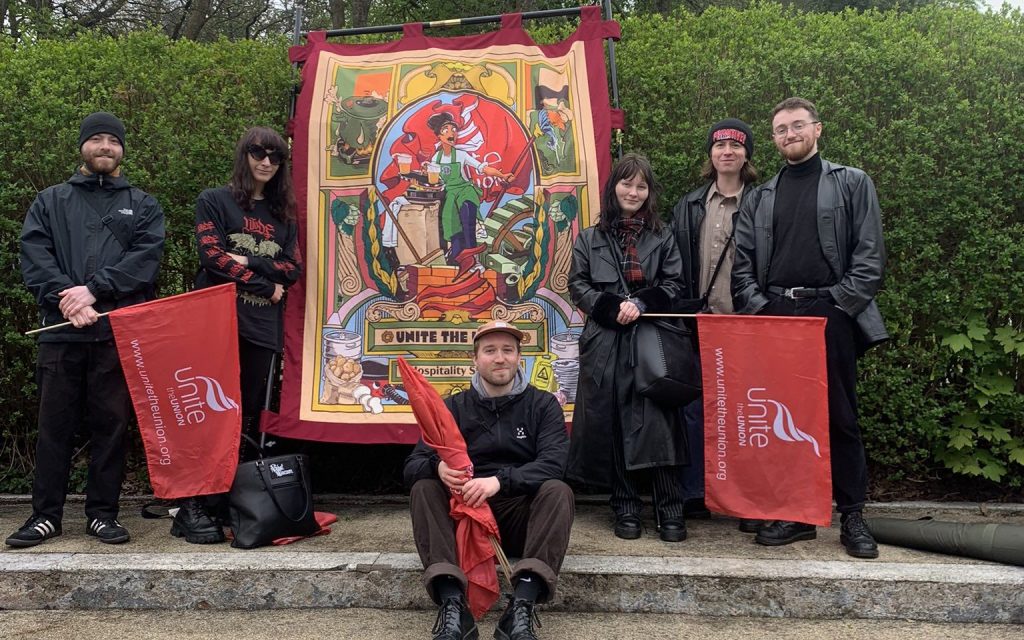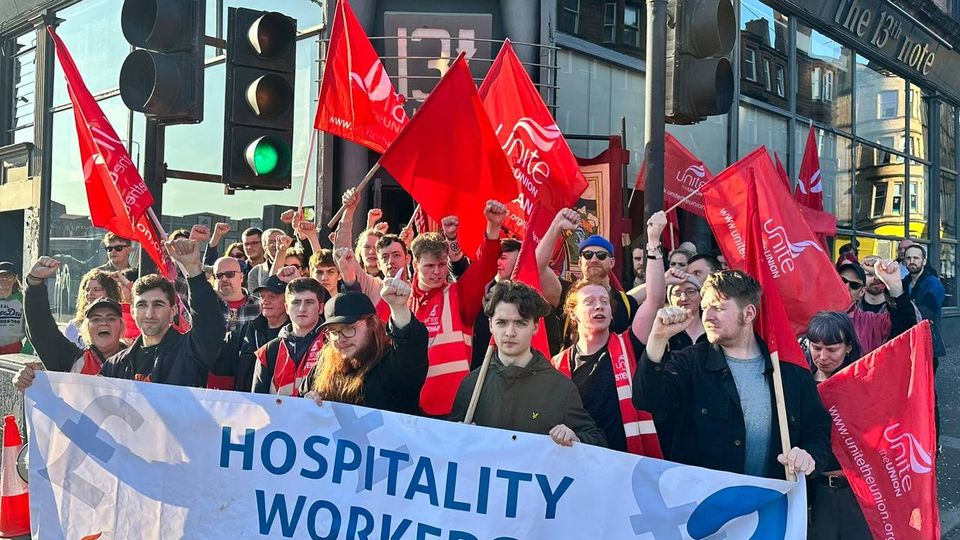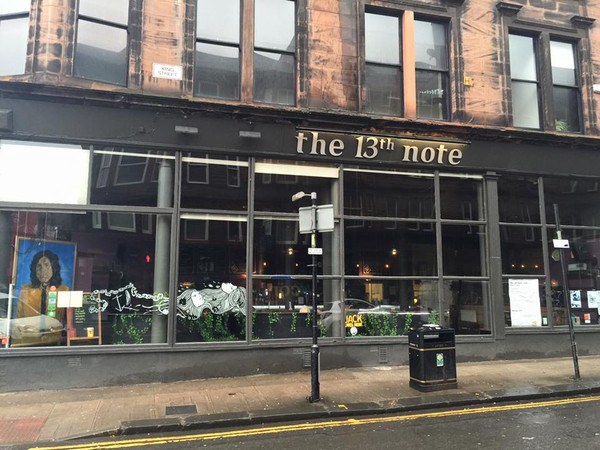Worker’s struggles in creative venues seems to frequently elicit responses in defence of mistreatment from employers: the trade unions are going after the wrong bosses, or so we’re told. This observation doesn’t seem to come from a place of malice towards the struggles of workers insofar as it is ignorant towards them. Some sympathy can be afforded to the concerns raised by workers, but could they not raise their concerns with minimal fuss? Do they really need a union? Support is conditional for the workers who dare challenge the small business.
Creative venues often exist precariously, seemingly destined for financial insecurity with the threat of closure permanently looming dangerously overhead. Smaller creative venues in particular are integral to grassroots art and music, and they often hold special places in the hearts of the people who frequent them whether as artists or audiences. They are sacred places – grotty basements and the back rooms of run-down pubs that smell like stale beer, or airy modern spaces decorated with local artwork and dying plants. In many ways, they are the beating heart of any local scene; easily romanticised, evidently.
Creative work is precarious, with creative workers often subject to financial insecurity, a lack of control and a lack of time; furthermore, creative careers are often reserved for the most privileged with just 16% of creative workers coming from working class backgrounds.
The creative industries are built on foundations of precarious labour and although we may decry the impact of precarity on our creative lives, we cannot disregard the experiences of hospitality workers within creative venues, nor can we accept their poor working conditions as a necessity.
There is a tendency to exempt such venues from the scrutiny that might be placed on a larger company for their employment practices. “You should be grateful to work for an independent business!” is just a distant cousin of the corporate pizza party; the inference that it could be worse does not pay the bills.
In Glasgow there have been two prominent hospitality disputes at creative venues this year – Saramago and the 13th Note, represented by the Industrial Workers of the World (IWW) and Unite Hospitality respectively. Many similarities can be drawn between the two venues: both offered events space which played important roles in the city’s creative economy, both had vegan kitchens, and both have now closed.
The closure of these two venues on the back of workplace disputes seems to send a cautionary message to hospitality unions, and this is the argument being presented by many in defence of bosses. Unionising hospitality workers doesn’t work, and any attempt to do so may as well be understood as an attempt to close the venue and lose everyone their jobs – if you don’t like it, you can leave.
Organising in hospitality is not an easy task – a fact most who have attempted the feat can attest to. This can be attributed to several factors: firstly, it is important to understand the broader context of the UK labour movement and the decline in trade union membership that dominated the latter decades of the 20th century. The power trade unions hold in industrial disputes has been drastically reduced through legislation, leading unions to become somewhat diluted as they grapple to retain members through service models. Secondly, even at the peak of union density, hospitality was traditionally less represented than other sectors.

Hospitality workers have been separated from much of the discussions around workers’ struggles and they represent a very transient, often younger workforce. Their employers are hostile towards unions, and unions themselves often struggle to adapt to the demands of organising a hospitality workforce. While the narrative surrounding the viability of hospitality unions does seem to be gradually changing, it remains an uphill battle for hospitality workers themselves and the trade unions who represent them.
The difficulty encountered by hospitality workers in their attempts to organise may resonate with creative workers. While creative trade unions certainly exist, creative workers are similarly difficult to organise using traditional union structures. For musicians in particular, the lack of a traditional workplace can feel prohibitive to joining a union; very few musicians are full-time salaried employees and most rely on multiple income streams to secure a liveable salary.
Within this dynamic, musicians can find themselves with a lack of control over their work – gigs can be cancelled at short notice, funding can be cut, and essential income can be lost in the blink of an eye. There are also elements of competition between musicians – with limited resources available and practices such as undercutting ever-present, other musicians may be thought of as competitors before they are thought of as colleagues.
The Musicians’ Union (MU) has sought to adapt to the diverse needs of its members – a seemingly endless task as the world of work continues to shift. Membership levels within the MU have remained steady in comparison to other trade unions, and while this in itself does not capture the full picture of issues facing working musicians today, it does highlight a degree of success. As the MU suggest, their experience shows that it is possible to organise a workforce who don’t work in a traditional workplace.
For hospitality workers, losing hours at short notice can be a regular occurrence and attempts to acquire enough shifts can become competitive, particularly for those on zero-hour contracts. The apparent requirement to protect one’s own interests first and foremost is counterintuitive to any attempt to organise a workforce, and workplace issues that may have been resolved through collective action can instead be resolved individually, or by simply quitting and finding work elsewhere.
The transience of the hospitality workforce plays neatly into the hands of bosses for whom maintaining the status quo is preferable. Indeed, the very notion of organising a hospitality workforce seems to prompt one question: why try? The reality that a hospitality worker may like their workplace enough to want to make it better seems inconceivable, which speaks to the wider attitude towards such service industry work.
If we accept poor working conditions as part and parcel of hospitality, we send the message that the mistreatment of workers is acceptable in certain industries, and we are ultimately doomed to maintain poor standards that serve nobody but those who stand to profit.
While anti-union attitudes are generally anticipated in most disputes, the response of many nominally progressive people towards the two Glasgow disputes has often been disappointing. Opposition here is regularly accompanied by the assertion that they do support trade unions and “legitimate” disputes, but that the hospitality workers in our creative venues have simply gone too far. In these disputes, the unions that represent the workers become external organisations who parachute into venues with the sole intention of closing them down.
When it is conceded that the union is the workers themselves, it is suggested that it is just a handful of disgruntled employees who do not represent the views of the majority. It then becomes incomprehensible that any dispute in a creative venue is legitimate, and workers are instead framed as being in opposition to the venue’s existence. If this is to be the adopted stance, what then becomes of the boss who refuses to engage constructively with their staff?

In the case of the 13th Note, their decision to take strike action was historic; as one of the first Scottish bar strikes in recent memory, it showed that it is the hospitality workers who determine the operation of a venue. As the 13th Note staff stated, “no pint is poured, no dish is served and not a beat is played without the explicit permission of the workers”.
The decision to take strike action is not one made quickly or easily in any industry, and it is certainly not the first resort within any dispute. At Saramago, five weeks of demonstrations outside the venue in support of sacked IWW members culminated in the termination of their employer’s lease at the Centre for Contemporary Arts (CCA).
At each point of these disputes, the invitation was open to the bosses at the venues to engage with their staff with the goal of reaching a productive resolution. Instead, the unionised staff were framed as bullies rather than employees attempting to improve their working conditions.
A commonly held misbelief is that the formation of a union implies that bosses have failed in their role; however, this misunderstands the purpose of a union. While a union may form in response to negative circumstances, the existence of a union within a workplace is not indicative of a bad employer. On the contrary, the presence of a recognised union can be understood as desirable, indicating that workers hold collective bargaining power and the ability to enact positive change.
In other industries where union density is high, the suggestion that an employee should simply seek work elsewhere as a solution to a workplace issue would be laughable at best.
Ultimately, the formation of a union confronts bosses with the reality that they do not hold all the power in a workplace; improving pay and resolving health and safety issues costs money, depriving of them of additional profit. After all, if unions didn’t work, bosses wouldn’t oppose them so vehemently.
Creative venues present something of a double precarity for hospitality workers: with hospitality already hallmarked by low pay, insecure contracts and poor conditions, creative venues offer the additional precarity of operating within the creative industries. Defence of bosses often resorts to claims that they simply cannot afford to heed their staff’s demands, such is the precarity of the venue’s existence. However, the weight of this burden cannot be placed on hospitality workers.
It is indisputable that creative venues are at risk and require support if we want to maintain our cultural heritage. Warnings have been stark – our cultural sector is facing a “perfect storm” of financial pressure and for creative venues, increasing operating costs often require difficult business decisions to be made. We therefore cannot separate the funding issues facing our venues from the workplace disputes that arise within them.
Where it is suggested that a business simply cannot afford to heed demands for liveable pay, secure contracts and safe working conditions, the inference that workers are unreasonable for desiring better cannot be the accepted narrative.
When a venue closes, nobody wins – it is not the desired outcome of any party, regardless of how a situation may be misrepresented. If we are to trust that our creative venues are in good hands, we must see a shift in attitude towards hospitality unions within them. This requires solidarity between creative workers and hospitality workers as within a creative venue, neither can exist without the other.
It has been disheartening to see those involved in our creative sector deflect scrutiny from the bosses of creative venues and instead call on unions to organise elsewhere, perhaps in a chain bar where the bosses deserve to be challenged.
These bosses become the acceptable villain within hospitality, the indistinguishable corporate boss in comparison to the compassionate, hardworking small business owner: the wrong boss.
Dismissing the concerns of hospitality workers in creative venues only feeds a narrative that we cannot enact positive change. However, from the foundations laid by the workers at Saramago and the 13th Note, we must build stronger and ensure the fair treatment of hospitality workers is at the core of our creative venues.
Eilis O’ Keefe is a prominent Scottish trade unionist and Young Communist League member.



